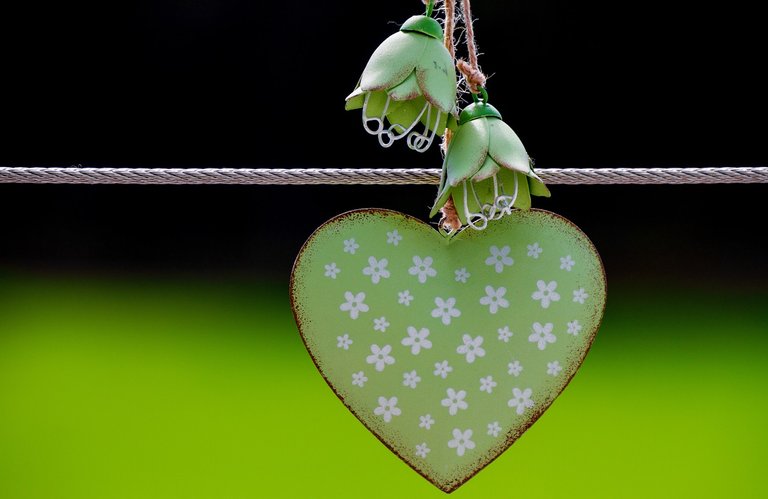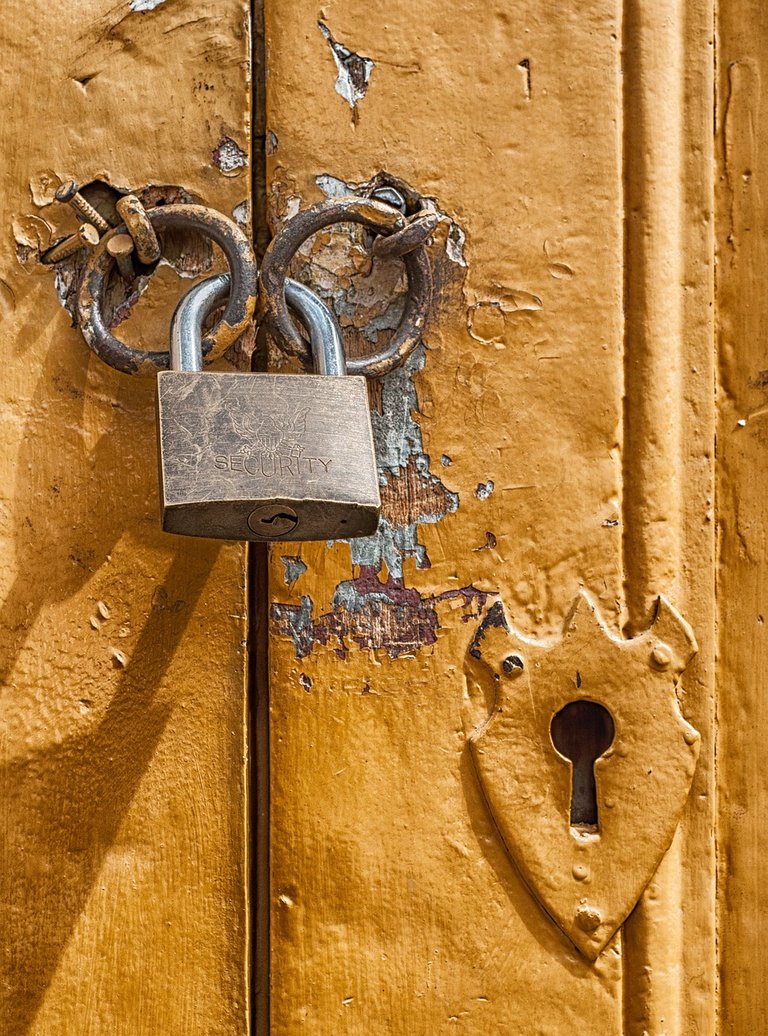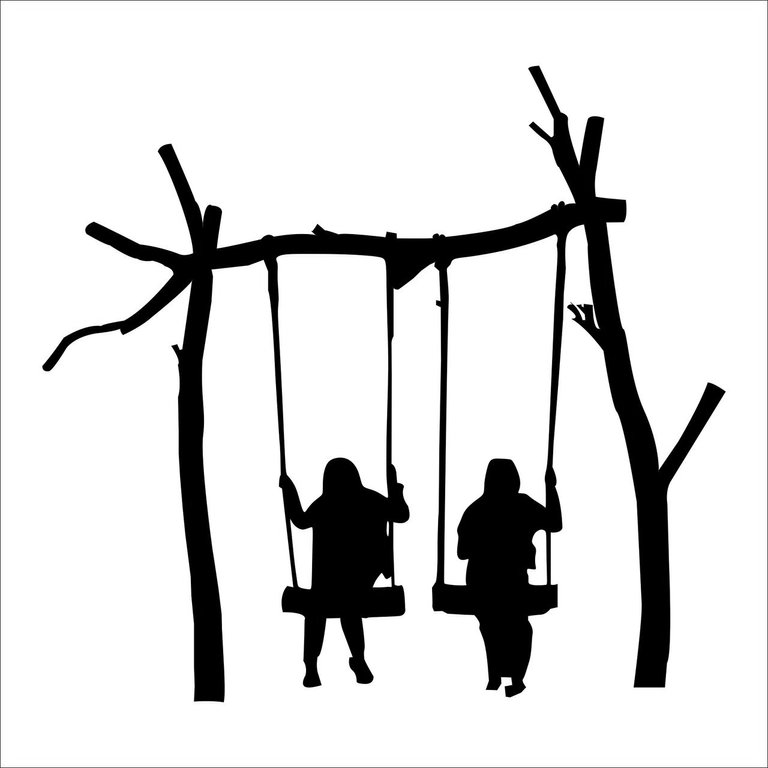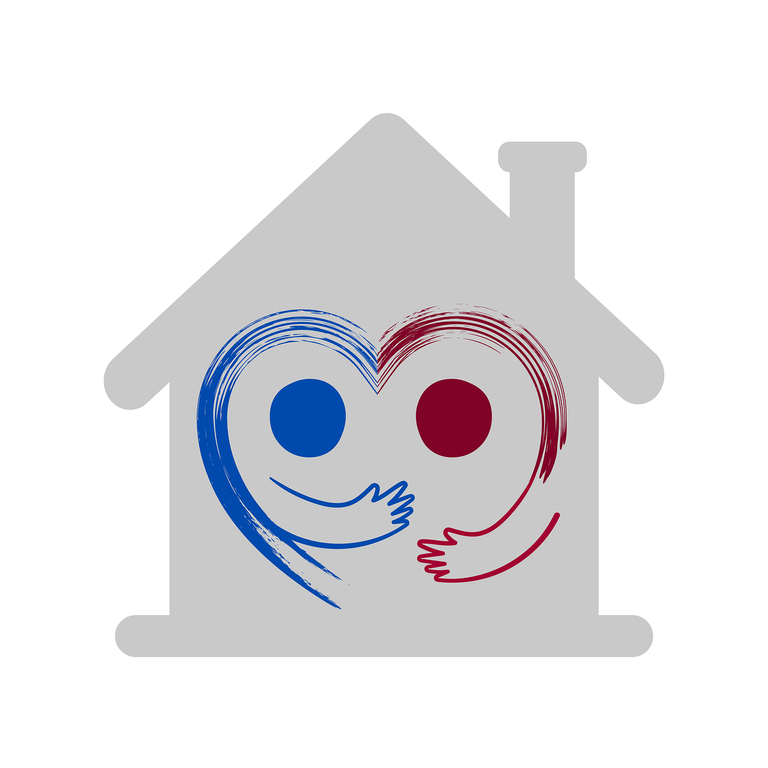¡Feliz día, amigos! Hoy, miércoles les saludo. De la mano con la comunidad de @efemerides.com, hoy hablaremos sobre una etapa inevitable de la vida, sobre la vejez, los adultos mayores y el reconocimiento en su estatus y rol, fundamentales en la construcción de la identidad de la familia y la sociedad.
Efemérides | 29 de mayo: día nacional del adulto mayor
Nuestra vida tiene etapas y períodos. Nacemos, vivimos y morimos. Sin embargo, en ese período al cual llamamos vida, es donde está la diferencia que cada uno de nosotros agrega. Según la Organización Mundial de la Salud, OMS, la población mundial está envejeciendo a pasos agigantados. Es más, hacen la proyección que en los próximos 50 años, se duplicará la cantidad de habitantes en el mundo mayores de 60 años, junto con una disminución dramática de la natalidad.
Cuando hablamos de la tercera edad hacemos referencia a todas aquellas personas mayores de 65 años; pero hoy se tiende a denominar adultos mayores. La vejez es un estado del ser humano donde se producen cambios fisiológicos, físicos, sociales y psicológicos. Todos hablamos de la vejez y todos vamos hacia ella; pero si tratamos de definirla, no es tan fácil. Parece ser una constante que se trate de utilizar como referente el criterio de la edad; infancia… adolescencia … edad adulta … y envejecimiento.
Sin embargo, éste no parece ser útil para cubrir todo el variopinto de circunstancias que rodean la definición de vejez. Aparte de que cada persona envejece en forma diferente, hay que tomar en cuenta otros criterios, aparte de cronológicos, epidemiológico y estadístico, porque la vejez es un estado del ser, donde los cambios psicológicos, emocionales y afectivos, cumplen una función importante en esa etapa de la vida.
Igualmente, existe la tendencia de utilizar un criterio sociolaboral para definir a las personas de la tercera edad, es decir, se toma como referencia la jubilación; igualmente este criterio es relativista y cuestionador, porque esta etapa de la vida y sus características no son simple instrumento de medición que se inclina ante prototipos sociales, como el nivel de independencia económica, por ejemplo.
Los niveles de apoyo como referente para acercarnos al constructo de la vejez.
Tenemos tipos de envejecimiento que, si bien lo miramos, van a depender de los niveles de apoyo que se necesitan.
Se habla de un envejecimiento patológico, cuando factores como la degeneración natural y las enfermedades se combinan para que la adaptación al entorno sea muy difícil. El envejecimiento fisiológico, forma parte de la evolución natural y la persona puede adaptarse en forma positiva. Y por último está el envejecimiento óptimo, hay una elevada adaptación, competencias mentales y sociales, que permiten al envejecimiento abrirse paso en forma activa. No suelen haber enfermedades graves, ni dependencia importante.
¿Cómo asumimos la vejez?
En comparación con otros tiempos históricos, es un hecho que la esperanza de vida ha aumentado, con la mejora en los sistemas de salud, igualmente esto trae como correlato que deseemos vivir más tiempo pero también gozando de la mayor salud posible. Bien sabemos que las dolencias propias de la vejez, nos apartan en gran medida de apreciar las ventajas que la vejez realmente tiene.
Sí, ventajas. Los avances de las neurociencias, la psicología, la medicina y los sistemas de salud, han hecho que la calidad de vida de las personas mayores de incremente. Sabemos que en general se piensa en la vejez como una etapa de padecimientos y de males, como resultado de los cambios asociados a la edad, olvidando los atributos positivos de esta etapa de la vida:
– Salud física y emocional: otro factor que ayuda a explicar este bienestar son los avances en la medicina, que permiten a los adultos mayores mantenerse dinámicos por más tiempo. De hecho, cuando los ancianos tienen un papel más activo en la sociedad y llevan una vida intensa, sus neuronas aumentan en número y actividad. Esto redunda en un mejor funcionamiento del cuerpo, y en su estado de ánimo general, a la vez que puede prolongar la vida.
– Bienestar emocional: existe la tendencia a pensar que la vejez se relaciona indefectiblemente con niveles de tristeza perennes. Por el contrario, la felicidad, más que depender única y exclusivamente de circunstancias de momento, es un estado integral que, gracias a recursos emocionales subyacentes, suele aumentar según avanzan los años.
– Sabiduría: las experiencias de la vida nos dan ventajas y conocimientos sobre la vida y las personas, así se gestionan mejor las emociones y se toman con mejor actitud los tropiezos de la vida.
– Adecuada calidad de vida, clave para disfrutar de las ventajas de la vejez. Cuando hablamos de calidad de vida nos referimos a tener salud, incluyendo en este término las ventajas vistas anteriormente, desde una perspectiva amplia: salud física y psicológica; realizar ejercicio periódicamente, comer sano, realizar actividades con amigos y visitar al médico regularmente. La calidad de vida va a depender de ser autosuficientes, de sentirse valorados y queridos.
Los paradigmas sobre la vejez.
Los paradigmas sobre la vejez están sufriendo una transformación; actualmente se habla viejos-no viejos.
Según Klein, este grupo paradigmático de transición, paradójicamente el paradigma mismo -como estructura más o menos ordenada de pensamiento o de indagación de la realidad- se ha deslegitimado o se ha vuelto imposible desde los procesos que presenta la sociedad del envejecimiento.
Nuevas versiones del envejecimiento
¿Qué nos quiere decir esto? … ni en forma empírica, ni en forma social puede actualmente definirse lo que es el proceso de envejecimiento en forma articuladamente clara con la cosmogonía del progresivo final de la vida.
El consenso es la falta de consenso sobre la vejez. La divergencia toma ventaja significativa sobre la uniformidad ideológica.
Surge en este punto una pregunta obligada, ¿los paradigmas sobre la ancianidad se manejan por información y datos empíricos o por idearios netamente sociales?; muy probablemente haya una mezcolanza que en forma permanente se retroalimenta en ambos sentidos. Es cierto que existe una tendencia a hablar de vulnerabilidad social; pero vale la pena preguntarse si el paradigma deja determinadas categorías sin suficiente análisis, por ejemplo, la misma categoría vulnerable.
Cuando el paradigma se consolida, pasa a ser ideología dominante, entonces a partir del mismo se despliegan referencias que se identifican con él y con las cuales, posteriormente, el anciano y todo a quien a él haga referencia, lo hará con un lenguaje correlacionado: soy viejo y vulnerable, soy vulnerable porque soy viejo; o por el contrario, soy un ciudadano con deberes y derechos y me siento capaz de ejercer esa ciudadanía.
Por otra parte, puede suceder que surja la definición de adulto mayor asociado a la idea de que debe ser productivo, con características que se asocian a la juventud, como ágil y vigoroso, imposibilitando de esta manera que sea y viva como como un adulto mayor.
Finalmente, una tendencia paradigmática puede asumir el envejecimiento como simplemente un periodo etario, una etapa final de la vida, pues resume en cuanto constructo social, significaciones culturales y sociales que replantean, contra todo pronóstico, la (mal) mencionada sociedad del envejecimiento.
Por esta razón hablar o identificar un paradigma sobre la vejez representan una enorme complejidad, porque igualmente se corre el riesgo de que anulen la diversidad de que implican los contextos de envejecimiento.
A continuación les dejo un hermoso poema sobre la vejez, de José Saramago.
¿Qué cuántos años tengo? -¡Qué importa eso!
¡Tengo la edad que quiero y siento!
La edad en que puedo gritar sin miedo lo que pienso.
Hacer lo que deseo, sin miedo al fracaso o lo desconocido...
Pues tengo la experiencia de los años vividos
y la fuerza de la convicción de mis deseos.
¡Qué importa cuántos años tengo!
¡No quiero pensar en ello!
Pues unos dicen que ya soy viejo,
y otros "que estoy en el apogeo".
Pero no es la edad que tengo, ni lo que la gente dice,
sino lo que mi corazón siente y mi cerebro dicte.
Tengo los años necesarios para gritar lo que pienso,
para hacer lo que quiero, para reconocer yerros viejos,
rectificar caminos y atesorar éxitos.
Ahora no tienen por qué decir: ¡Estás muy joven, no lo lograrás!...
¡Estás muy viejo, ya no podrás!...
Tengo la edad en que las cosas se miran con más calma,
pero con el interés de seguir creciendo.
Tengo los años en que los sueños,
se empiezan a acariciar con los dedos,
las ilusiones se convierten en esperanza.
Tengo los años en que el amor,
a veces es una loca llamarada,
ansiosa de consumirse en el fuego de una pasión deseada.
y otras... es un remanso de paz, como el atardecer en la playa...
¿Qué cuántos años tengo?
No necesito marcarlos con un número,
pues mis anhelos alcanzados,
mis triunfos obtenidos,
las lágrimas que por el camino derramé al ver mis ilusiones truncadas...
¡Valen mucho más que eso!
¡Qué importa si cumplo cincuenta, sesenta o más!
Pues lo que importa: ¡es la edad que siento!
Tengo los años que necesito para vivir libre y sin miedos.
Para seguir sin temor por el sendero,
pues llevo conmigo la experiencia adquirida
y la fuerza de mis anhelos
¿Qué cuántos años tengo?
¡Eso!... ¿A quién le importa?
Tengo los años necesarios para perder ya el miedo
y hacer lo que quiero y siento!
Qué importa cuántos años tengo.
o cuántos espero, si con los años que tengo,
¡aprendí a querer lo necesario y a tomar, sólo lo bueno!
POEMA SOBRE LA VEJEZ de José Saramago.
Hasta una próxima oportunidad ...
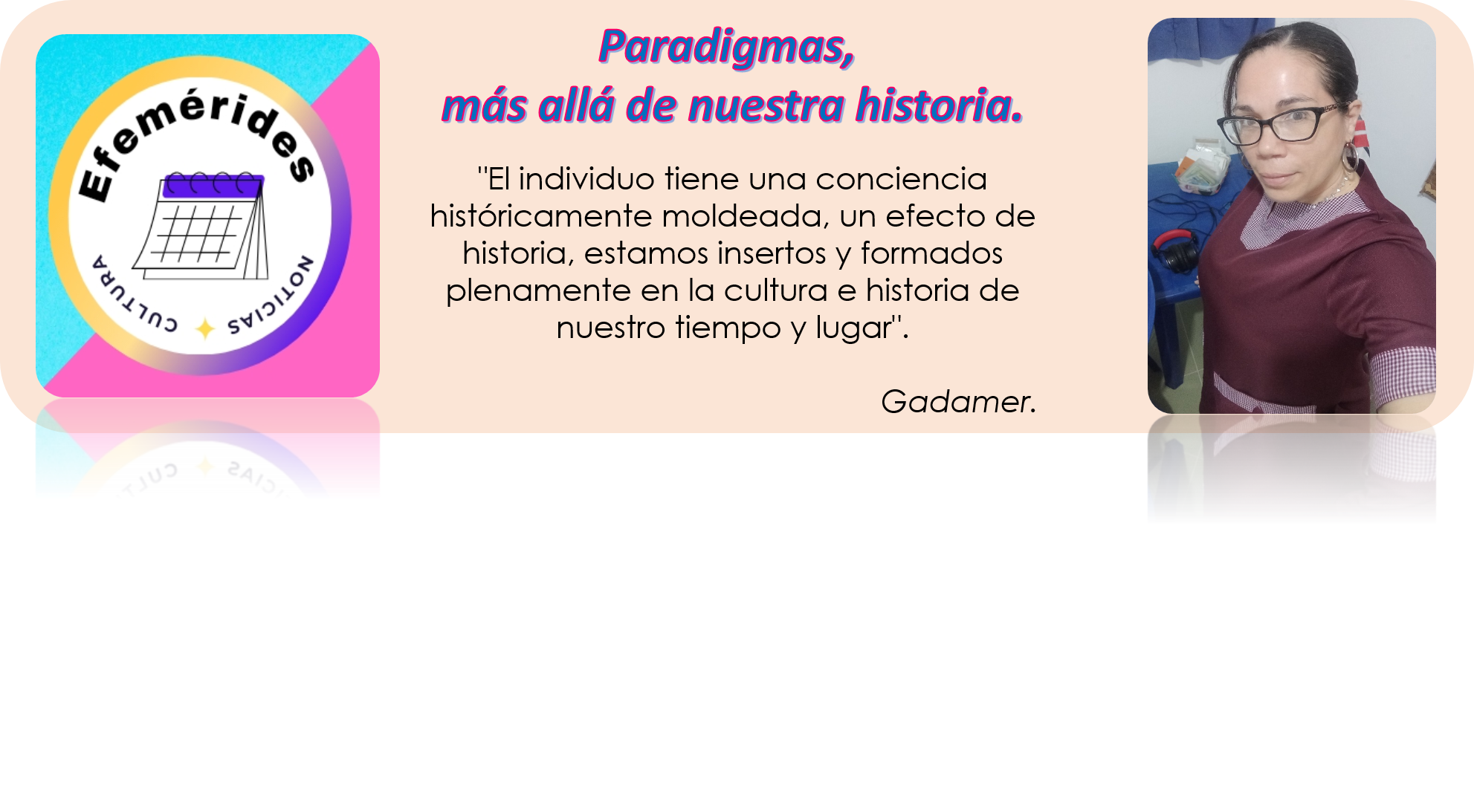
Traducción: DeepL, versión libre.
Happy day, friends! Today, Wednesday, I greet you. Hand in hand with the @efemerides.com community, today we will talk about an inevitable stage of life, about old age, older adults and the recognition in their status and fundamental role in the construction of the identity of the family and society.
Anniversaries | May 29: National Day of the Elderly
Our life has stages and periods. We are born, we live and we die. However, in that period which we call life, is where the difference that each one of us adds is. According to the World Health Organization, WHO, the world population is aging by leaps and bounds. What's more, they project that in the next 50 years, the number of people in the world over the age of 60 will double, along with a dramatic decrease in the birth rate.
When we speak of the third age we refer to all those people over 65 years old; but today we tend to call them “senior citizens”. Old age is a state of the human being in which physiological, physical, social and psychological changes occur. We all talk about old age and we are all going towards it; but if we try to define it, it is not so easy. It seems to be a constant that we try to use the criterion of age as a reference; childhood ... adolescence ... adulthood ... and aging.
However, this does not seem to be useful to cover the whole range of circumstances surrounding the definition of old age. Apart from the fact that each person ages differently, it is necessary to take into account other criteria, apart from chronological, epidemiological and statistical, because old age is a state of being, where psychological, emotional and affective changes play an important role in this stage of life.
Likewise, there is a tendency to use a socio-labor criterion to define the elderly, i.e., retirement is taken as a reference; this criterion is also relativistic and questioning, because this stage of life and its characteristics are not a simple instrument of measurement that is inclined to social prototypes, such as the level of economic independence, for example.
The levels of support as a referent to approach the construct of _old age.
We have types of aging that, if we look at it, are going to depend on the levels of support that are needed.
We speak of pathological aging when factors such as natural degeneration and disease combine to make adaptation to the environment very difficult. Physiological aging is part of natural evolution and the person can adapt positively. And finally there is optimal aging, there is a high adaptation, mental and social competences, which allow aging to make its way in an active way. There are usually no serious illnesses, no major dependency.
How do we deal with old age?
Compared to other historical times, it is a fact that life expectancy has increased, with the improvement in health systems, and this also brings as a correlate that we want to live longer but also enjoying the best possible health. We are well aware that the ailments of old age keep us from appreciating the advantages that old age really has.
**Yes, advantages. Advances in neuroscience, psychology, medicine and health systems have increased the quality of life of the elderly. We know that old age is generally thought of as a time of ailments and ills, as a result of the changes associated with age, forgetting the positive attributes of this stage of life:
- There is a tendency to think that old age is inevitably associated with perennial levels of sadness. On the contrary, happiness, rather than depending solely and exclusively on current circumstances, is an integral state that, thanks to underlying emotional resources, tends to increase as the years go by.
- Wisdom:** life experiences give us advantages and knowledge about life and people, so emotions are better managed and life's stumbling blocks are taken with a better attitude.
- Physical and emotional health:** another factor that helps to explain this well-being is the advances in medicine, which allow older adults to remain dynamic for longer. In fact, when the elderly play a more active role in society and lead an intense life, their neurons increase in number and activity. This results in better functioning of the body, and their overall mood, while potentially prolonging life.
- Adequate quality of life is the key to enjoying the benefits of old age. When we talk about quality of life we refer to having health, including in this term the advantages seen above, from a broad perspective: physical and psychological health; regular exercise, healthy eating, activities with friends and regular visits to the doctor. Quality of life will depend on being self-sufficient, feeling valued and loved.
Paradigms about aging.
Paradigms about old age are undergoing a transformation; nowadays we talk about old-not old..
According to Klein, this transitional paradigmatic group, paradoxically the paradigm itself - as a more or less ordered structure of thought or inquiry into reality - has been delegitimized or has become impossible since the processes presented by the aging society.
New versions of aging
**... neither empirically nor socially can the aging process currently be defined in a clear articulation with the cosmogony of the progressive end of life. Consensus is the lack of consensus on aging. Divergence takes significant advantage over ideological uniformity.
At this point an obligatory question arises: are the paradigms on old age driven by information and empirical data or by purely social ideologies; most probably there is a mixture that permanently feeds back in both directions. It is true that there is a tendency to speak of social vulnerability; but it is worth asking whether the paradigm leaves certain categories without sufficient analysis, for example, the very category _vulnerable.
When the paradigm is consolidated, it becomes the dominant ideology, then from it, references are deployed that are identified with it and with which, subsequently, the elderly and all those who refer to it, will do so with a correlated language: I am old and vulnerable, I am vulnerable because I am old; or on the contrary, I am a citizen with duties and rights and I feel capable of exercising that citizenship..
On the other hand, it may happen that the definition of older adults is associated with the idea that they should be productive, with characteristics associated with youth, such as agile and vigorous, thus making it impossible for them to be and live as an older adult.
Finally, a paradigmatic tendency may assume aging as simply an age period, a final stage of life, since it summarizes, as a social construct, cultural and social meanings that rethink, against all odds, the (badly) mentioned aging society.
For this reason, talking about or identifying a paradigm on aging represents an enormous complexity, because it also runs the risk of overriding the diversity implied by the contexts of aging.
Here is a beautiful poem about old age by José Saramago.
How old am I? -What does it matter!
I am the age I want and feel!
The age when I can shout without fear what I think.
To do what I want, without fear of failure or the unknown?
For I have the experience of years lived
and the strength of the conviction of my desires.
It doesn't matter how old I am!
I don't want to think about it!
For some say that I am already old,
and others “that I am in my prime”.
But it's not how old I am, nor what people say,
but what my heart feels and my brain dictates.
I am old enough to shout what I think,
to do what I want, to recognize old mistakes,
to rectify paths and to treasure successes.
Now they don't have to say: You're too young, you won't make it!
You're too old, you won't make it!....
I'm at the age when things are looked at more calmly,
but with the interest to keep growing.
I am the age when dreams
begin to be caressed with the fingers,
illusions become hope.
I have the years when love
is sometimes a crazy flame,
anxious to be consumed in the fire of a desired passion.
And others... it's a haven of peace, like the sunset on the beach...
How old am I?
I don't need to mark them with a number,
for my longings achieved,
my triumphs obtained,
the tears I shed along the way when I saw my illusions dashed...
They are worth much more than that!
What does it matter if I turn fifty, sixty or more!
For what matters: it is the age I feel!
I have the years I need to live free and without fear.
To follow the path without fear,
for I carry with me the experience I have gained
and the strength of my desires
How old am I?
That!... Who cares?
I have the years necessary to lose fear
and do what I want and feel!
Who cares how old I am.
or how many I expect, if with the years that I have,
I learned to want what is necessary and to take only the good!
POEM ABOUT OLD AGE by José Saramago.
Until next time...

Translation: DeepL, free version.
